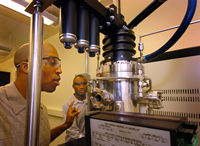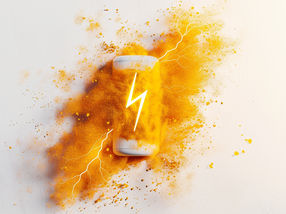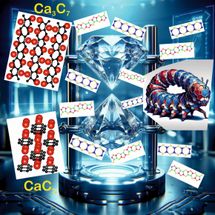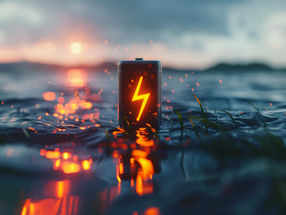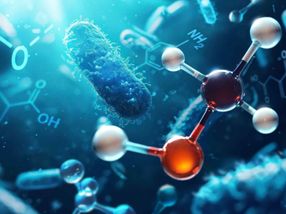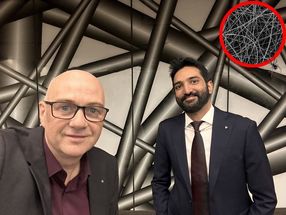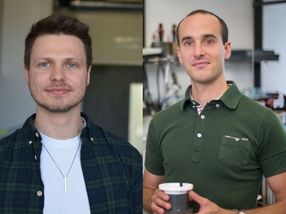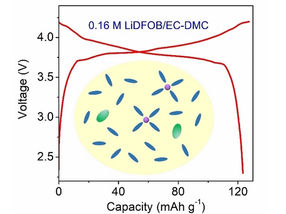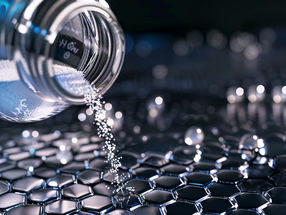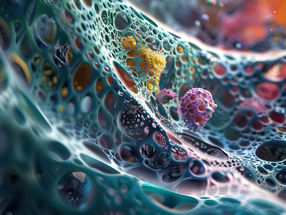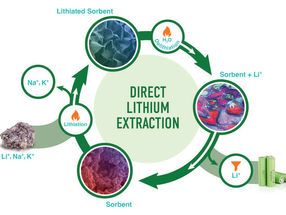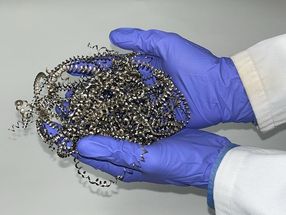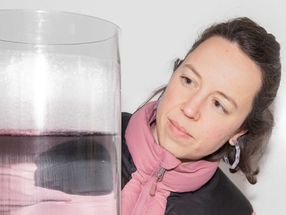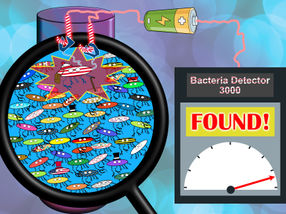Miracles of the nanoworld: Noise makes nanoelectrodes faster
nanotechnology has rapidly gained in importance during recent years. However, when developing nanosystems even further scientists come up against the same problem time and again: many of the principles familiar from the normal, macroscopic world are not valid in the nanoworld. Physicists from the Technische Universität Muenchen (TUM) have now developed a method with which they can compute the behavior of electrochemical nanosystems. Their work is presented in Proceedings of the National Academy of Sciences (PNAS).
In the world with which we are familiar chemical reactions appear to proceed in a continuous way. If one considers electrodes, which are only a few nanometers in size, however, chance suddenly comes into play: depending on the random motion of the molecules in the environment, reactions take place at one electrode, and at the other one first a short time later. The exact point in time at which a reaction will take place cannot be predicted. The continuous flow of current begins to stutter.
Models which accurately describe the macroscopic situation are no longer applicable on the nanoscale, and new descriptions must be found. Professor Katharina Krischer and Dr. Vladimir Garcia-Morales from the Physics Department of the TUM have now developed a calculation model that enables these reactions to be simulated.
In the course of their investigations, the scientists discovered a surprising effect: electrochemical reactions proceed faster on isolated nanoelectrodes than on macroscopic electrodes. With the aid of their new calculation models they were able to clarify how this effect comes about. The randomness of the occurrence of an electrochemical reaction causes molecular noise. In contrast to our daily experience where noise is more likely to be an interfering factor, it plays a constructive role at the nanoelectrodes.
The work published was supported by the European Union (project DYNAMO) and the Nanosystems Initiative Munich cluster of excellence. Starting April, Dr. Garcia-Morales will be working as a Junior Fellow at the Institute for Advanced Study of the Technische Universitaet Muenchen (TUM-IAS).
Original Publication: Vladimir García-Morales and Katharina Krischer; "Fluctuation enhanced electrochemical reaction rates at the nanoscale"; PNAS 2010.
Most read news
Other news from the department science

Get the chemical industry in your inbox
From now on, don't miss a thing: Our newsletter for the chemical industry, analytics, lab technology and process engineering brings you up to date every Tuesday and Thursday. The latest industry news, product highlights and innovations - compact and easy to understand in your inbox. Researched by us so you don't have to.
